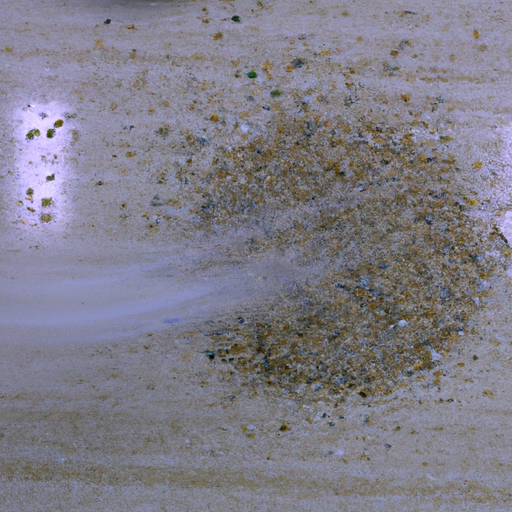-
Table of Contents
- Introduction
- The Pros and Cons of Using NPK Granules in Your Garden
- Tips for Making NPK Granules at Home
- The Different Types of NPK Granules and Their Uses
- How to Choose the Right NPK Granule for Your Needs
- The Benefits of Using NPK Granules in Your Garden
- Understanding the Basics of NPK Granule Production
- Conclusion
“Grow Bigger, Better Crops with NPK Granules!”
Introduction
Making NPK granules is a great way to provide your plants with the essential nutrients they need to grow and thrive. NPK stands for nitrogen, phosphorus, and potassium, which are the three main macronutrients that plants need to survive. Granules are a great way to provide these nutrients in a slow-release form, so that your plants can get the nutrients they need over a longer period of time. In this guide, we’ll go over the steps you need to take to make your own NPK granules.
The Pros and Cons of Using NPK Granules in Your Garden

NPK granules are a popular choice for gardeners looking to provide their plants with the essential nutrients they need to thrive. While NPK granules can be a great way to give your garden a nutrient boost, there are both pros and cons to consider before using them.
Pros
One of the main advantages of using NPK granules is that they are easy to use. All you need to do is sprinkle the granules around the base of your plants and water them in. This makes them a great choice for busy gardeners who don’t have a lot of time to spend on fertilizing.
NPK granules are also very cost-effective. They are usually much cheaper than liquid fertilizers, and you can buy them in large quantities, which can save you money in the long run.
Finally, NPK granules are very precise. You can choose the exact ratio of nutrients that your plants need, which means you can tailor your fertilizer to the specific needs of your garden.
Cons
One of the main drawbacks of using NPK granules is that they can be difficult to spread evenly. If you don’t spread them evenly, some plants may get too much fertilizer while others may not get enough.
NPK granules can also be washed away by heavy rain or irrigation, which means you may need to reapply them more often than other types of fertilizer.
Finally, NPK granules can be harmful to the environment if they are not used correctly. If you use too much fertilizer, it can run off into nearby waterways and cause water pollution.
In conclusion, NPK granules can be a great way to give your garden a nutrient boost, but it is important to consider both the pros and cons before using them. If you use them correctly, they can be a great addition to your garden.
Tips for Making NPK Granules at Home
1. Start by gathering the necessary ingredients. You will need a source of nitrogen, phosphorus, and potassium, such as urea, monoammonium phosphate, and potassium chloride. You will also need a binding agent, such as bentonite clay, and a granulating agent, such as sulfur.
2. Measure out the desired amounts of each ingredient and mix them together in a large bowl. Make sure to mix them thoroughly to ensure an even distribution of nutrients.
3. Once the ingredients are mixed, add the binding agent and granulating agent. The binding agent will help the granules hold their shape, while the granulating agent will help them form into small pellets.
4. Once the ingredients are mixed, spread them out on a flat surface and let them dry. This will help the granules form into their final shape.
5. Once the granules are dry, you can store them in an airtight container. This will help keep them fresh and prevent them from clumping together.
6. When you are ready to use the granules, simply spread them around your garden or lawn. The nutrients will slowly be released into the soil, providing your plants with the nutrients they need to grow.
The Different Types of NPK Granules and Their Uses
NPK granules are a type of fertilizer that is used to provide essential nutrients to plants. NPK stands for nitrogen, phosphorus, and potassium, which are the three primary macronutrients that plants need to grow and thrive. NPK granules are available in a variety of formulations, each of which is designed to meet the specific needs of different types of plants.
The most common type of NPK granules are those that contain a balanced ratio of nitrogen, phosphorus, and potassium. These granules are suitable for use on a wide variety of plants, including vegetables, flowers, and trees. They are typically applied to the soil at the beginning of the growing season and can be used to supplement existing soil nutrients or to provide a complete nutrient package for new plants.
For plants that require higher levels of nitrogen, phosphorus, or potassium, there are also NPK granules that are formulated with higher concentrations of one or more of these nutrients. For example, high-nitrogen granules are often used on lawns and other grassy areas to promote lush, green growth. High-phosphorus granules are often used on flowering plants to encourage blooming. And high-potassium granules are often used on fruit trees and other plants that require extra potassium for healthy growth.
In addition to these standard NPK granules, there are also specialty granules that are designed to meet the specific needs of certain plants. For example, there are granules that contain micronutrients such as iron, zinc, and manganese, which are essential for healthy plant growth. There are also granules that contain organic matter, which can help improve soil structure and promote healthy root growth.
No matter what type of NPK granules you choose, it is important to follow the instructions on the package carefully. This will ensure that your plants get the nutrients they need without being over-fertilized.
How to Choose the Right NPK Granule for Your Needs
When it comes to choosing the right NPK granule for your needs, there are a few important factors to consider. NPK stands for nitrogen, phosphorus, and potassium, and these three elements are essential for healthy plant growth. The right NPK granule will provide the right balance of these three elements to ensure optimal growth and development.
First, consider the type of plants you are growing. Different plants require different levels of nitrogen, phosphorus, and potassium. For example, vegetables require more nitrogen than flowers, while flowers require more phosphorus than vegetables. Knowing the specific needs of your plants will help you choose the right NPK granule.
Second, consider the soil type. Different soils have different levels of nutrients, and the right NPK granule should be tailored to the soil type. For example, sandy soils require more nitrogen than clay soils, while clay soils require more phosphorus than sandy soils.
Third, consider the climate. Different climates require different levels of nutrients. For example, warm climates require more nitrogen than cold climates, while cold climates require more phosphorus than warm climates.
Finally, consider the size of the granule. Different sizes of granules are available, and the right size will depend on the size of the plants you are growing. For example, small plants require smaller granules, while larger plants require larger granules.
By considering these four factors, you can choose the right NPK granule for your needs. With the right NPK granule, you can ensure optimal growth and development of your plants.
The Benefits of Using NPK Granules in Your Garden
Using NPK granules in your garden can be a great way to ensure that your plants are receiving the nutrients they need to thrive. NPK stands for nitrogen, phosphorus, and potassium, and these three elements are essential for healthy plant growth. NPK granules are a convenient and cost-effective way to provide your plants with the nutrients they need.
NPK granules are easy to use and can be applied directly to the soil or mixed with water and applied as a liquid fertilizer. This makes them a great choice for gardeners who want to save time and money. NPK granules are also more concentrated than liquid fertilizers, so you can use less of them to get the same results.
NPK granules are also beneficial because they are slow-release, meaning that the nutrients are released gradually over time. This helps to ensure that your plants are receiving the nutrients they need throughout the growing season. Slow-release fertilizers also help to reduce the risk of nutrient runoff, which can be damaging to the environment.
NPK granules are also beneficial because they are more cost-effective than other types of fertilizers. They are also more convenient to use, as they can be applied directly to the soil or mixed with water and applied as a liquid fertilizer.
Overall, using NPK granules in your garden can be a great way to ensure that your plants are receiving the nutrients they need to thrive. They are easy to use, cost-effective, and provide slow-release nutrients that are beneficial to your plants and the environment.
Understanding the Basics of NPK Granule Production
NPK granules are a type of fertilizer that are used to provide essential nutrients to plants. They are composed of three primary nutrients: nitrogen, phosphorus, and potassium. These nutrients are essential for healthy plant growth and development. NPK granules are produced through a process known as granulation. This process involves combining the three primary nutrients with other materials such as sulfur, magnesium, and calcium to create a granular product.
The process of granulation begins with the selection of the raw materials. The raw materials are then mixed together in a mixer to create a homogenous mixture. This mixture is then fed into a granulator, which is a machine that uses high-speed rotating blades to break the mixture into small particles. The particles are then dried and cooled before being screened to remove any impurities. The screened particles are then passed through a sieve to create the desired size of granules.
Once the granules have been produced, they are then packaged and shipped to the customer. NPK granules are available in a variety of sizes and formulations, depending on the needs of the customer. They can be used as a soil amendment or as a fertilizer for plants.
NPK granules are an important part of the agricultural industry, as they provide essential nutrients to plants. They are easy to use and can be applied directly to the soil or mixed with other fertilizers. NPK granules are an effective and economical way to ensure that plants receive the nutrients they need for healthy growth and development.
Conclusion
Making NPK granules is a relatively simple process that can be done with the right equipment and materials. The process involves mixing the raw materials, forming the granules, drying them, and then coating them with a protective layer. The key to success is to ensure that the raw materials are of the highest quality and that the granules are formed and dried properly. With the right equipment and materials, NPK granules can be made quickly and efficiently.

